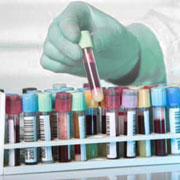Laboratory Testing | Austin, TX
Too often, people fall victim to an easily preventable disease that could have been dealt with by getting regular blood tests. This is why regular blood testing is an important part of maintaining optimal health. Laboratory data provides objective information showing how the body is performing at any given point in time. It allows a physician to specifically target and address biochemical pathways and areas of cellular function that are not functioning optimally.
Dr. Ruthie Harper and her staff evaluate and assess the results of every laboratory test and determine what is optimal in order to create a personalized wellness plan specific to your needs. We are concerned with your individual well being and want to get you on the road to optimal health.
When reviewing a patient’s blood test results, there is usually only concern when there is a particular result outside of the “normal”. The problem with interpreting blood work in this way is that “normal” reference ranges tend to represent the average level of health among the general population instead of the optimal levels required to maintain your health. Getting the body working efficiently and effectively as a whole is the key to achieving personalized optimal health. When combined with an experienced practitioner like Dr. Ruthie Harper, laboratory testing provides an invaluable resource to the patient.
If you live in Central Texas or the greater Austin, TX area, schedule a comprehensive consultation and lab work with Dr. Ruthie Harper – and take the first step to regaining your health and feeling your best!





